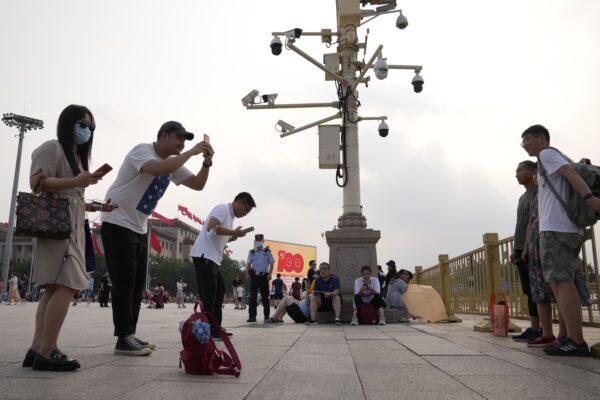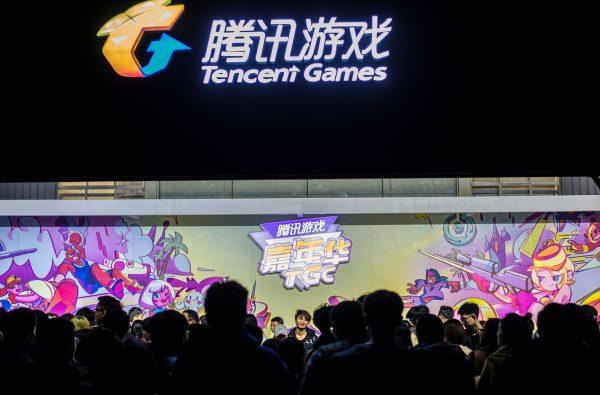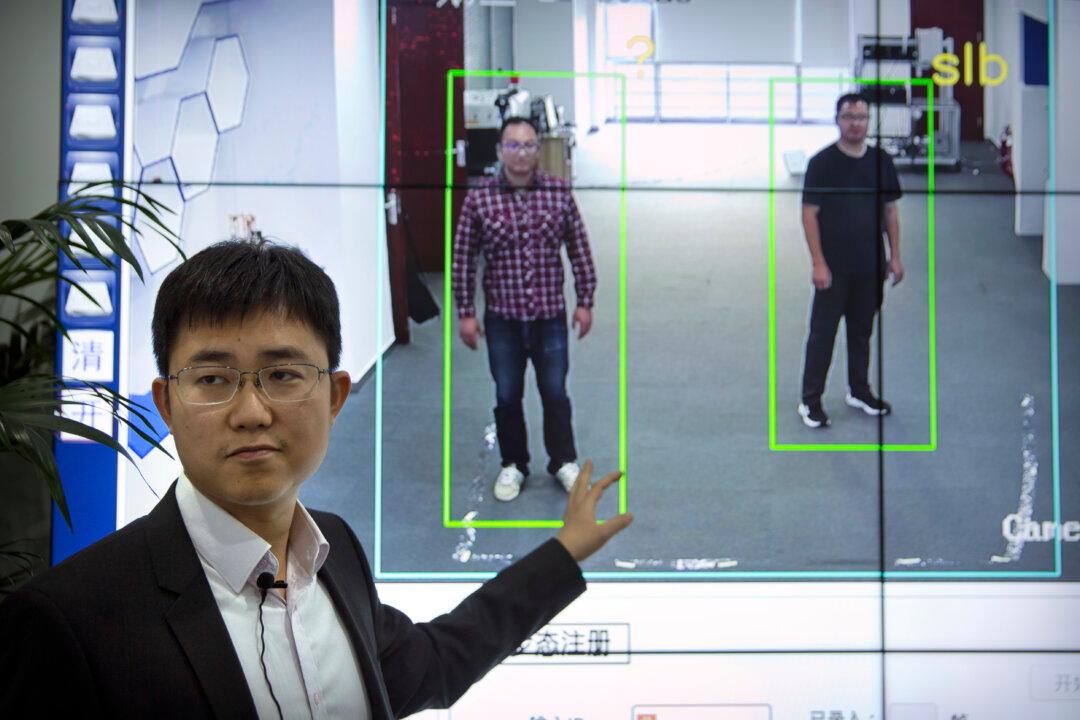Eileen, a high-level manager in a Chinese internet company, decided to leave China after experiencing years of police harassment because her ID labeled her as “a member of the heretical religions.”
After arriving in the United States in August, she told the Chinese language edition of The Epoch Times that she became the subject of constant surveillance when she tried to prevent the conviction of her mother who had been arrested and detained by the regime for her belief in Falun Gong.
Falun Gong is a spiritual practice rooted in ancient Chinese culture. Adherents follow the principles of truth, compassion, and tolerance. In the same way the Chinese Communist Party (CCP) targets any religion in China, the regime initiated a campaign of persecution of Falun Gong followers in 1999.
When Eileen was dealing with the government regarding her mother’s case, even though she refused to reveal her ID number, the authorities used a facial scanner to retrieve her records and then added the “designation” to her ID. After that, police harassment followed her wherever she went.
Tracked by Big Data
Despite years of effort, Eileen’s mother was illegally tried and sentenced to prison. Eileen also became the subject of the persecution campaign.On a business trip in 2020, she was stopped by the police right before boarding a high-speed train in a southern city in China, which she thought was part of a routine pandemic prevention check; but it was then she realized that her ID had a label.
The police took her photo and let her leave, but she knew her identity was jeopardized, and ever since, the tagged ID has shadowed her life.
On another business trip to a northern city for example, an alarm was triggered when she swiped her ID at a train station. She was immediately brought to a dark room filled with police officers.
The men demanded that she sign the so-called three documents specifically designed for adherents of Falun Gong. Signing the documents meant that she “admits her mistakes and crimes of practicing and/or defending Falun Gong, and shows her appreciation to the CCP for correcting her mistakes.”
Eileen refused to sign any documents, but the police continued to threaten her until just before the train left the station.

Forced to Leave
She had to change jobs because national security agents from another city visited her when she was at work, purportedly to discuss her mother’s lawsuit.She said, “It’s actually a way to intimidate. A person like me could have excelled in my career.”
For years, Eileen has felt the pressure of being under surveillance. She said, “The stress keeps you awake at night. You feel like a second-class citizen, oppressed and monitored at all times.”
The oppression ruined her life and peace as an ordinary person. She said it’s unfortunate that there are so many people—fully aware of the evil cruelty of the campaign—following the regime’s orders for the sake of their positions and titles.
One time, when she went to the prison to visit her mother, looking at the high wall outside the prison, she wept over the thought that her mother, a nice, law-abiding person, was locked inside the high walls for her beliefs.
Tencent, a Digital Surveillance Assistant
As an expert in the field, Eileen knew exactly how the internet companies tailored their platforms to accommodate the regime’s censorship requirements.She explained that the Information Security Department of Tencent, China’s leading internet service company, operates with two systems to meet the censorship needs of the regime. One establishes and constantly updates a lexicon of sensitive terms through the automatically applied algorithms with its Big Data; the other, an auxiliary team, works day and night, to manually delete sensitive posts made using cell phones.

“Tencent was fighting against the people; it felt just like a war between the good and the evil. People tried to spread the video with various means. It was like a race. Pretty soon, the web link wouldn’t work, the video accounts wouldn’t work, download wouldn’t work, even an upside down video wouldn’t work, and Flash wouldn’t work. Tencent just deleted them all, like a maniac,” she said.
The video is now only viewable outside China.
Eileen criticized Tencent for choosing to act as a thug and monitor and control people, rather than using its technology to make people’s lives better.
“What Tencent does is sinful,” she said.




